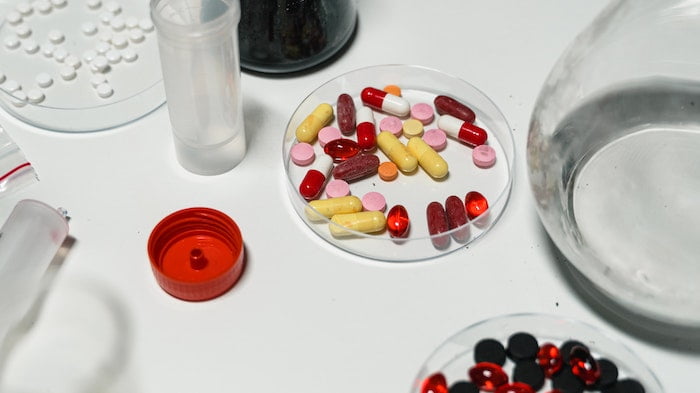Drug & Alcohol Rehab in Rugeley
It is no easy task facing up to an addiction, and doing so can be incredibly confusing as well as physically and emotionally difficult.
Treating addiction takes time and dedication, but before the process can even begin, a substance abuse problem needs to be identified. Denial and misinformation, however, can make this initial step much more challenging than necessary, and so many who need help can go weeks and months without receiving it.
Spreading accurate information about addiction and its treatment can work wonders for helping individuals get into appropriate rehab treatment. That’s why we want to help by addressing the warning signs of addiction, some information about why they develop, and how individuals can get into suitable treatment.
Get in touch with us today by calling 0800 326 5559.
The Key Signs of Addiction

Identifying when an addiction has developed is harder than it seems for those who are in the position of assessing their own behaviour. Not only can they potentially be unsure of what the key signs of addiction are, and therefore not know what to look for, but denial can often complicate the process as well. [1]
Individuals in denial fail to recognise their harmful behaviours due to an unconscious resistance to accepting that they have an addiction. Their unconscious mind seeks to protect them from the social and psychological consequences of their behaviour, and so they refuse to see anything wrong, instead believing that their substance use is regular and treatment is not necessary.
Denial is very common, and it is therefore important to clearly identify some of the key signs of addiction. These include:
- Consuming drugs or alcohol on a day-to-day basis
- Consuming drugs or alcohol in inappropriate situations, such as at work or school
- Being secretive about substance use
- Taking risks or falling into financial hardship to pay for substance use
- Experiencing withdrawal symptoms – such as shaking, nausea, or insomnia – when a substance is not consumed
While these are some of the key signs of addiction, individuals can experience some alternatives that are not listed. If drug or alcohol consumption is a routine part of your life and you are unsure as to whether your substance use has developed into an addiction, speak to a GP or addiction support group to see whether you could benefit from rehabilitation treatment.
Self-medicating with Substance Abuse

The reasons why addiction develops are plentiful, and this makes treatment of the condition a complex process. Everyone can have different underlying causes for their behaviour, but there are some triggers which tend to be more common than others in explaining why substance abuse is able to develop.
Poor mental health, for example, is a very common cause of addiction.
Depression, anxiety, trauma, as well as other mental health complications can be incredibly challenging for individuals to manage. Their symptoms can include intense mood swings and severe dips in self-esteem, and these can hider individuals’ abilities to work, socialise, or go about their daily business.
In order to help manage these symptoms, many who struggle with such conditions can turn to drugs or alcohol. The soothing and relaxing effects these substances have at first can dim or soften difficult thoughts and feelings, and after a while, individuals can mistake these substances as viable methods of self-medication for their poor mental health.
As a result, when individuals experience the negative effects of their anxiety or depression, they learn to take drugs or alcohol in order to cope. This behaviour soon shifts from a psychological to a physical dependency, meaning that the body quickly begins to rely on this consumption as well as the mind.
Get in touch with us today by calling 0800 326 5559.
I Have an Addiction – What Do I Do?
If you find that you exhibit some of the behaviours listed above, or you have spoken to a medical professional who thinks that you are suffering from an addiction, you might be unsure as to what to do next.
While it might be scary, it is essential that those who develop addictions seek medical help as soon as they can in order to optimise their chances of making a successful recovery. But what does ‘seek medical help’ specifically mean? Who are you supposed to talk to?
OK Rehab telephone assessments
If you need help, speak to us at OK Rehab! When you get in touch with us, we can conduct a telephone assessment with you and help you get started on your recovery journey.
During a telephone assessment, one of our experts will speak to you about your addiction and what exactly you are dealing with. This conversation will cover what symptoms you are experiencing, how long your addiction has been going on for, and what underlying mental health problems might be connected to your substance abuse.
In addition to these areas, our experts might also inquire as to your living arrangements, family relations, and medical health history. While private, this information can go a long way in informing our experts and helping them to provide you with the most appropriate advice.
Once this assessment has taken place, OK Rehab will be equipped to make suggestions as to what rehab treatment you might benefit from, and make arrangements for you to enter a facility which will provide the kind of care that will prove most effective for your personal situation.
Treating addiction
What does the process of addiction recovery involve? What will I need to do when I enter rehab?
These are very common and important questions. Not only can doubts about rehab put you off beginning treatment in the first place, but unresolved uncertainty can make you feel less confident and therefore less comfortable when the process has begun.
While you will learn a lot about addiction treatment during your telephone assessment, it can be good to get an idea as to what it involves beforehand. Treatment can vary in its specifics and focuses from programme to programme, but there are still certain methods which carry over and remain present in all.
Get in touch with us today by calling 0800 326 5559.
Detoxification
Substance abuse is ultimately a physical experience. Drugs and alcohol severely disrupt the way in which the body works, and addictions are reinforced by the body’s aggressive cravings for the consumption of substances that it has become reliant on.
When an individual tries to stop their drug or alcohol consumption, they experience withdrawal. This involves them experiencing symptoms that are incredibly uncomfortable and, in the case of alcohol withdrawal, quite dangerous. For this reason, breaking an addiction is a very hard thing to do.
Detoxification, therefore, involves a careful and monitored process of stopping consumption. Substance use is gradually reduced, allowing the body to slowly adjust to sobriety, with medical professionals always on hand to keep an individual safe and on track.
This tapering off ensures that withdrawal is limited and manageable, allowing the body to make positive progress without putting an individual’s health at risk or sparking symptoms that push them back into wanting to use.
Therapy

As well as this physical need to use, however, there is also the underlying psychological reasons why individuals turn to addiction. As described above, many use drugs or alcohol as a way of handling their mental health problems.
After detoxification has taken place and given an individual some freedom away from their physical cravings, they are still greatly at risk of relapse. If the underlying reasons for their addiction are not dealt with – and their depression, anxiety, or trauma is left untreated – they will only return to it when they leave treatment.
As a result, rehab programmes offer therapy activities which target these addictive triggers and help address them. For example, Cognitive Behavioural Therapy (CBT) can be utilised to help individuals identify situations that exacerbate their anxiety and develop healthier ways of coping with them. [2]
Getting Support from OK Rehab
If you are considering drug and alcohol rehab and need support, get in touch with us at OK Rehab. We can help!
It can be frightening to think about addiction treatment, and trying to find rehab in the Rugeley area can feel overwhelming. But when you contact us, we can help find the right programme for your situation and make sure that you feel confident about taking the next steps towards a healthier lifestyle.
Get in touch with us today by calling 0800 326 5559.
[1] https://research.birmingham.ac.uk/portal/files/25519189/DENIAL_PICKARD_M_L_FINAL_PRE_PROOF.pdf





